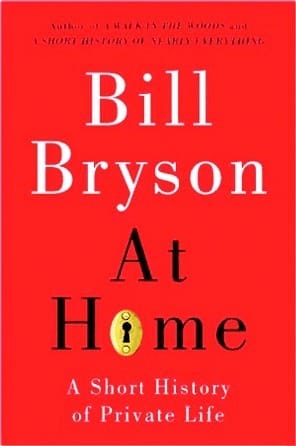
Ever seen an ad on social media that made you wonder, “What on earth was that company thinking?” Or read an email from a charity that made you tear up—and make a donation—in the blink of an eye?
Almost every human on earth is bombarded with thousands of messages per day. Only a few get remembered. There’s an art, and a bit of science, to making yours stick.
A Better Way to Say That explores why some messages work and others don’t. Once a month we’ll dissect the trends, technologies, and Weird Tricks that shape how people are communicating with each other in 2024—and what that means for your organization.
In 2018, tech journalist Ian Bogost wrote an article for The Atlantic titled “Brands Are Not Our Friends.” The lede is a remarkable historical artifact, a relic of a time when a uniformed man appearing on your doorstep as a result of your tweets might evoke bemusement rather than terror.
In the eight million eternities since then, much in this world has changed. Many brands (of the for-profit and non-profit varieties) are no longer interested in just being your friend. Now they talk like your therapist. In their view, this is “meeting the moment.”
First: what does that mean? Second: it does not work.
Almost everyone feels that things are off right now. A comms strategy is not going to change that—but it can determine whether your organization is seen as a beacon of sanity in a crazy world, or a smarmy contributor to the current mess.
Some are insipid, others are just kind of obnoxious.
Respecting your audience’s intelligence might be crazy enough to work.
Because the last word is rarely the end of the conversation.
Much like penguins, we enjoy bringing you little gifts to show we care:
Sick of useless AI features, product integrations, and data collection scripts cluttering your browser? A new tool offers blessed relief.
The Central Brooklyn Food Co-op is hiring a Director ($115,000 a year) to help open a retail location serving Black communities in Bed-Sty, Crown Heights, and Central Brooklyn.
If Veronika the 13-year old cow can learn to use a tool, perhaps there’s hope for all of us.
Here’s what one of us is currently reading:

“The coffee served in the coffeehouses wasn't necessarily very good coffee. Because of the way coffee was taxed in Britain (by the gallon), the practice was to brew it in large batches, store it cold in barrels, and reheat it a little at a time for serving. So coffee's appeal in Britain had less to do with being a quality beverage than with being a social lubricant. People went to coffeehouses to meet people of shared interests, gossip, read the latest journals and newspapers—a brand-new word and concept in the 1660s—and exchange information of value to their lives and business. Some took to using coffeehouses as their offices–as, most famously, at Lloyd's Coffee House on Lombard Street, which gradually evolved into Lloyd's insurance market. William Hogarth's father hit on the idea of opening a coffeehouse in which only Latin would be spoken. It failed spectacularly–toto bene, as Mr. Hogarth himself might have said— and he spent years in debtors' prison in unhappy consequence.”
People who like reading about history but get distracted easily by rabbit holes, take note: Bill Bryson may be the writer for you! This book purports to be a history of the home, both as a concept and as a collection of items and structural elements. If that sounds like a lot to cover, don’t worry—it’s actually so much more.
Like an insomniac following a chain of Wikipedia links, Bryson cannot stop himself from following every vaguely relevant trail back to at least one good anecdote or historical tidbit. This book is better for his lack of restraint. From the pepper trade to electricity, tables and chairs to the concept of comfort as a linguistic descriptor, he really covers just about everything in your daily life that you may have ever wondered about.*
*Or not—I could have done without the long aside about the Erie Canal, but I’m not a barge girlie.
Within the home, there’s a lot of history to cover. How is a book like this even possible? Each bit is short and interrelated, really an unending stream of anecdata and research, a few pages or lines given to any one topic. This can get distracting when it serves to gloss over atrocities like the work of the East India Company, or the transatlantic slave trade, which are covered with about the same level of detail as a single train derailment in Pennsylvania.
But it’s a great intro to a million topics, and a good appetizer for a reader trying to choose what they’d like to read next. If they could just shut that last browser tab and focus...
Not every organization has to acknowledge "these uncertain times." But if you're going to join that conversation, it's wise to offer people something more than empty therapyspeak.

Guessing about what the future holds is an amusing and low-risk pastime—most of the time, newspapers won’t write stories about you admitting you were wrong—but we still think it’s best to be realistic. We also believe it’s important to have a sense of humor about these things. Because have you seen the world out there? So, having established the parameters of “practical” and “fun,” here are the themes that (we hope) will define communications in 2026:
[The] forces that defined the past year—the AIfication of everything, the Trump Administration’s crusade to reshape the world, the ultra-personalized emptiness of digital life—still seem to have a head of steam. When they’ll run out is anyone’s guess. So here’s a prediction for the new year: people are going to start valuing a human touch a lot more.

If the 2010s were an era of diversity in media, the 2020s are one of consolidation. This presents obvious challenges when trying to get small or medium organizations mentioned in the news. Success depends on riding the waves that already exist, instead of trying to make new ones.
Press releases sometimes feel like relics from a simpler, more innocent time. Much like fax machines, most people are aware they continue to exist. What’s less clear: who actually uses these things in 2025? And for what purpose?

The ability to not sound like you were just lobotomized by a team of nonprofit execs with MBAs has become a way to stand out. It's “riskier” in a sense, because it’s easier for people to tell what you’re actually saying—and potentially criticize it. On the other hand, nobody’s listening to the jargon jockeys anymore.

When we founded this agency last year, we had a pretty straightforward idea of how we’d run our business: do good work with our own hands, communicate honestly, and treat people fairly. We thought this would be the simplest path to earn a decent living and contribute something to human society. After a year of this experiment, here’s what we’ve found...

Working with people you think are interesting is good for your own personal and career growth. If their ideas are good enough to work on for free, someone will eventually pay them for that, and you’ll have forged a professional relationship—or better, a friendship—with someone smart.

There’s nothing wrong with media outlets exploring new revenue streams, and newsrooms are always fluctuating in size. But outlets can only hollow out their core product so much before it collapses entirely, and a growing number of media organizations seem to be reaching that point now. Live events are not going to save them.
Comms agencies that are good at their work tend to be curious and resourceful. We can’t pretend to be ignorant about the people and products we’re telling the public to trust. In all but the rarest cases, the agency knows what it wants to know. Business is never as pure or idealistic as we might want it to be. It does have ethical boundaries, though, and these are especially important at inflection points like the one we’re in now.
We humans like to explore for exploring’s sake. We’re pleased when we find an unexpected beautiful thing, and we feel a sense of satisfaction when we “discover” something that’s not immediately obvious to the casual observer. People want to spend time in environments where these opportunities are available—which is something to consider when building (or updating) your website.
Nonprofits shouldn't have to beg for funding to provide vital services. But with federal funding suddenly scarce—and thousands of organizations scrambling to attract attention from the big donors that remain—a new kind of comms strategy is needed.

The platform doesn't drive traffic to your site. The ads don't convert. And these days most of the "engagement" comes from spam bots or virulent bigots. It's time to move on from Twitter—but to where?
Everybody loves talking about the importance of "storytelling" for building your organization's name recognition. And it really can work—but it requires more planning and effort than firing off the occasional blog post or Instagram post.

If your nonprofit or small business has a clear message to share about a concrete goal it wants to achieve, video can do that better than any other medium—if it's done right.

Today, even a glowing review in the New York Times doesn't move the needle that much. Getting people's attention takes a more creative approach. And it all hinges around owning the means of (content) production.

In the inaugural issue of A Better Way to Say That, we explore important questions like why does this newsletter exist? and why does PSE exist, for that matter? We also share a roundup of exciting new book launches, events, and job postings—along with perhaps the most effective fundraising email ever written. As far as business-y newsletters go, it's a fun read!

